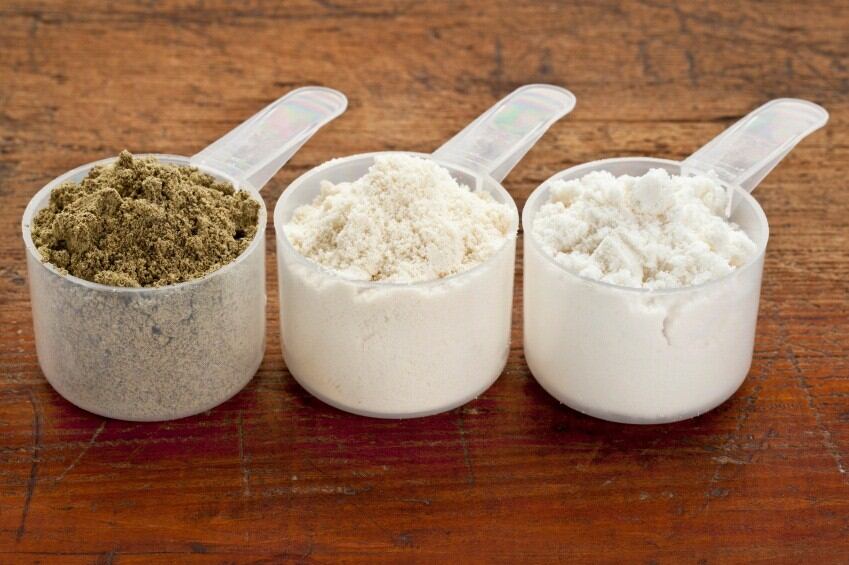Battling malnutrition
With two billion people suffering from vitamin A, iron, and iodine deficiencies, according to the FAO, there is so much potential for nutrition and companies in this space to make a big difference. In our May special edition we looked at the issue of malnutrition across the globe, from food insecurity in America (being obese and malnourished at the same time) to the Dutch food companies collaborating to combat malnutrition in Africa and Asia, and the malnutrition of our elderly in hospitals.
We also sat down with Howard Schiffer from Vitamin Angels to learn about how the charity could reach 100 million kids tomorrow if it had the funding. We also published a gallery with photos from Vitamin Angels showing their efforts to combat hidden hunger around the world.
Amino acids and protein
Protein continues to flex its muscle in the sports nutrition market, but there is much more to protein than building muscles, from satiety to blood pressure benefits.
Starting with muscles, branched chain amino acids – or BCAAs – are taking center stage for sports nutrition products.
“Research shows that BCAAs are able to stimulate skeleton muscle protein synthesis to the same degree as all 9 essential amino acids, so those three are really key,” said Dr Ralf Jaeger, PhD, FISSN, President of Milwaukee-based consultancy Increnovo LLC.
“When we examine further, only leucine was able to stimulate protein synthesis independently. However, leucine on its own is not effective, so you need leucine and the other amino acids, too.”

Protein requirements for muscle health in the context of sarcopenia was the focus of another of our articles, with Jose Antonio, PhD, CEO of the International Society of Sports Nutrition, telling us: “It is about time that clinicians realized that consuming protein ABOVE the Recommended Dietary Allowance is needed to ameliorate the loss of muscle protein with age. Adhering to the RDA for protein would be like white water rafting without a paddle. It's just plain dumb.”
Moving beyond muscle, protein has a recognized role in satiety, where the source of the protein seems to be of less importance than for muscles. Our examination of this topic revealed significant opportunities for manufacturers in the breakfast sector, according to Tom Vierhile, innovation insights director at Datamonitor.
“It looks like breakfast is the opportunity that many of the new higher protein products are targeting, launches like Dannon Activia Breakfast Blend Lowfat Yogurt and Special K Flatbread Breakfast Sandwich," he said.
“As 2013 goes forward, we'll have to see if new launches make a closer association between higher protein and staying full.”
With so much demand for protein it is not surprising that new sources are emerging, with varying degrees of success. Articles in the special included a look at rice protein (the market growth is happening now, said the CEO of Axiom), how chickpeas as a new high-protein ingredient for snacks, and canola (will it ever take off?)
Brain-boosting nutrients
The US brain food category was growing much faster than many other functional food categories, although with a retail value of less than $2bn in 2009, it is still behind other leading health condition categories, like heart health, and bone & joint health.
There is a growing body of data supporting the cognitive benefits of various nutrients including omega-3 fatty acids such as DHA, the Mediterranean diet, phosphatidylserine (PS), caffeine, vitamin E, and the B vitamins.
While the DHA story in brain health is, at its base, fairly straightforward because of the high levels of DHA in fatty tissue of the brain, EPA has less of an obvious role. However, our article on EPA presented the emerging science and thinking about EPA for brain health. The most promising data, according to William Harris, PhD, an omega 3s researcher at the University of South Dakota, is in the area of depression.
Another emerging brain ingredient is vitamin E, a nutrient bemoaned by some as being ‘overlooked’ after disappointing results from trials for preventing cancer and cardiovascular disease. Michael McBurney, PhD, director of scientific affairs for DSM Nutritional Products, North America, told us that, in the context of brain health, vitamin E’s antioxidant effects play a key role protecting membranes for oxidation, and omega-3 fatty acids from peroxidation (97% of the omega-3 fatty acid docosahexaenoic acid (DHA) is found in the brain).
Other articles in this series included, Mass fortification of iron, iodine still not the standard, and Alzheimer's genetic risk factor linked to resveratrol target protein: Study.
Botanicals!

Our last special edition of the year delved into the booming botanical sector, valued at $5.6 billion in the US alone. Our gallery, In pictures: The top botanicals and their health benefits, provide incredibly popular with readers. .
The market success and commercial opportunities have attracted a dark side, however, with adulteration an issue. The issue is increasingly acknowledged and discussed openly. Since 2011 the American Botanical Council (ABC), in cooperation with the American Herbal Pharmacopoeia (AHP), and the University of Mississippi's National Center for Natural Products Research (NCNPR), has operated an Adulterants Program, which acts as an educational resource for industry on product and ingredient adulteration. “I think it [the adulteration issue] is getting better and the reason is that FDA is knocking on doors first making sure people have specs. That can only make things better,” said Roy Upton, executive director of AHP.
Professor Monique Simmonds, OBE, an expert from the Royal Botanical Gardens at Kew, UK, spoke with us about better supply chain management bringing sustainability and quality to the botanicals sector. "I think you see more companies really having a greater concern that they do know exactly what is happening on their supply chain, and therefore linking closer with the source,” she said.
We also spoke with Joseph Simcox, the Botanical Explorer, to get his insights into sustainable and ethical cultivation of botanicals, and how we could be on the cusp of a new era with phytonutrients.
One botanical with a bright future is curcumin and our extensive article on the growth of this considered the growth, the potential, and the challenges of its ongoing success. Please click here to read: Any moment now… Is curcumin momentum building towards a tipping point?
Other articles in our series looked at the botanical situation in Europe. These articles included: Has EFSA sparked a light in Europe’s dark botanical tunnel?, and EU's ongoing botanicals battle: ‘Consumers need more information’.

2014… ?
To check out next year’s special editions calendar, please click here.
